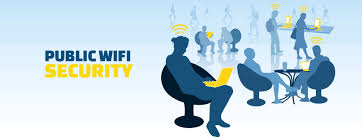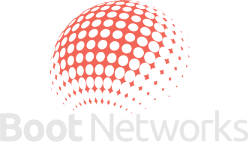Wifi Security

With spread of Wi-Fi across the planet, people can now find free Internet access easier than ever before. Whether you’re at a cafe, at the bus stop, or even flying across the Atlantic, there is free Wi-Fi and Internet access available. New York City has even gone so far as turning old telephone booths into free public Wi-Fi hotspots.
The problem with all this free Wi-Fi is that hackers, identity thieves, and other computer users with malicious intent have started exploiting public Wi-Fi networks.
Once on a public network they have access and the ability to steal your private or personal business data as well as classified business information you have. Certain people will use this data to harm your business or employees or even take advantage of you personally. If you’re using the Internet here are some steps you can take to ensure your business and its employees are protected when accessing the Internet on the move or from a remote location.
It’s important to take steps to protect your data before you even attempt to connect to a public hotspot. Before you leave on vacation or decide to access some confidential business files from Starbucks, you should practice these following techniques to guarantee your online safety.
1. Your operating system works most efficiently and offers the most protection when fully patched. Ensure all Windows Updates have been applied.
2. Make sure you have anti-virus software installed and that it is up-to-date.
3. If you’re using any third party software like Java or Adobe programs make sure they are updated as well to prevent hackers from exploiting the old version.
Once you have followed these steps you can now connect to a public hotspot. Here are some additional ways to keep yourself and your small business protected online.
1. A VPN, or virtual private network, provides the best form of protection. A VPN will encrypt any traffic and create a secure route that will prevent hackers from accessing your data during your web sessions. This is the most important type of defense available against online malicious activity. A VPN connection simply offers the most protection for Internet users.
2. After a VPN, a wireless network that offers encryption is another way to protect yourself. There are 2 types of secure networks – WPA2 which is the most secure and WPA. WEP is the least secure network and should only be used as a last resort. Any Windows 7 users should also block file and printer sharing from their network location, as these are common exploits for hackers.
3. If you’re connecting to the Internet HTTPS and SSL connection provide the most secure connection. Both these connection types provide increased encryption and prevent other Internet users in the same network from monitoring your web activity. Even when you’re checking email you should be following safe browsing methods. This means using a web mail service that provides encryption rather than a local desktop application using unencrypted POP email. Some email providers don’t provide encrypted email and are typical targets for hackers. To keep your business data safe be sure you’re employees are using a secure and encrypted connection and web mail service.
4. Conducting financial transactions on a public Wi-Fi network is also a bad idea, even if you’re connected through a HTTPS or SSL connection. Public Wi-Fi hotspots offer the least protection and are often used by hackers to steal data. Remember: if you don’t have a VPN, don’t do any browsing that you wouldn’t want anyone else to see. If you or your employees are using the Internet on an unencrypted wireless network assume that everyone on that same network can see exactly what websites you’re visiting unless they are HTTPS secured. It’s important to remember this if you’re using the Internet in a library or airport. There are thousands of people accessing the same network who all have access to your unsecured information.
It’s important to stay informed on how to keep yourself and your business safe when using the Internet. Here are the things to remember before you even leave the office:
1. Guarantee that any programs on your computer, including the operating system, are all recently updated before you connect to public Wi-Fi. Old programs and outdated operating systems are a key target for hackers.
2. Always use a VPN if you have the option.
3. Only join networks that offer encryption. Remember, even if you have to pay to join a network that does not guarantee it is secure.
4. Try to limit web browsing to only websites that offer encryption
5. Never conduct financial transactions online using unsecured wireless access.
Following the techniques laid out will greatly improve your online security and prevent any malicious behavior against your personal or small business data.

